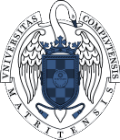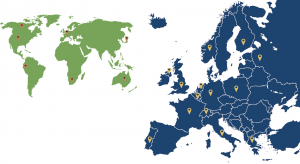Have a look at our publications!
Archive | Uncategorized
Facilities
The C3N provides our researchers and collaborators with the following resources:
Magnetoencephalography
Synchronized cortical activity generates a the very weak magnetic field outside the scalp, that can be measured with MEG. These emerging magnetic fields are measured by means of superconducting quantum interference devices or SQUIDs. SQUIDs, consist of superconductive coils with a very small interruption (Josephson junction), which can be crossed by electrons because of quantum effects. Liquid helium maintains the system at -269ºC, ensuring that the SQUIDs are working in a superconducting state. The MEG system is contained in a magnetically shielded room, so that it remains isolated from external noise (e.g. the Earth’s magnetic field is about 100 million times higher than brain’s one).
Our MEG system is a 306-channel Elekta Neuromag® (Elekta Oy, Helsinki, Finland) contained in a magnetically shielded room provided by Vacuumschmelze, (Hanau, Germany). The system has 102 magnetometers and 204 planar gradiometers in a helmet-shaped array covering the entire scalp. A 3D-digitizer (FASTRACK; Polhemus, Colchester, Vermont, US) and four HPI coils enable the continuous monitoring of the head position inside the MEG system. Additionally, our MEG device has an integrated EEG-system consisting on 60 single-ended channels and 4 differential channels, so that EEG, EOG, EMG, and ECG signals can be recorded. This EEG-System includes non-magnetic, MEG-compatible EEG caps. Auditory, visual and somatosensory stimulation is also possible. The participant’s behavior inside the MEG can be video-recorded, as well as their online responses by using two independent optical-fiber-based digit-response pads.
Electroencephalography
Electrical potentials on the scalp exhibit spatial and temporal patterns that depend on the nature and location of the sources and the way that currents and fields spread through tissue. Different patterns of these electrical impulses can denote various forms of epilepsy and also they can help diagnose several brain diseases such Alzheimer’s disease, head injuries, tumors, infections, etc. EEG is also used to evaluate problems with sleep (sleep disorders), investigate periods of unconsciousness and monitor the brain during brain surgery. Besides, EEG can assess the level of brain activity in the case of coma or vegetative state.
We have several EEG systems, including two 128-channel eego mylab (ANT Neuro, Hengelo, Netherlands) and one 64-channel Synamps (NeuroScan, El Paso, Texas, US). Additionally, we have a Faraday’s cage able to isolate brain signals from external noise sources.
Behavioural testing room
External facilities
About us
In the year 2000, the Universidad Complutense de Madrid (UCM) founded the Dr. Pérez Modrego Magnetoencephalography Center, the first MEG center in Spain and one of the first in Europe, leaded by professor Tomás Ortiz. This Center was a pioneer in the study of the neural bases of Alzheimer’s disease, and we contributed to the study of epilepsy, mental disorders, and cognitive processes. For almost ten years, this Center was a great breeding ground for attracting researchers and students interested in understanding the biological basis of cognition and its disorders.
Then, in the year 2009, the Universidad Complutense de Madrid joined forces with the Universidad Politécnica de Madrid to create the Laboratory for Cognitive and Computational Neuroscience, located in the Center for Biomedical Technology. The Laboratory acquired a new Vectorview machine, and the joint expertise of both Universities allowed the laboratory to grow exponentially. Here, the Laboratory gained expertise in the mathematical basis of the magnetoencephalography, and developed research lines for the development of methods for analysis, and for the study of computational neuroscience, among others.
Lastly (for now), in the year 2022 the Laboratory came back to the Universidad Complutense de Madrid and evolved into the Center for Cognitive and Computational Neuroscience (C3N), under the direction of Dr. Fernando Maestú, Full Professor of Experimental Psychology at UCM. This was possible thanks to the efforts of the UCM and a grant for the renewal of scientific infrastructure by the Spanish Ministry of Science. We expect the machine to be up and running by February 2022 in the installations of the C3N at the Somosaguas campus of the UCM.
We are eager to start this new chapter in the history of the magnetoencephalography, and to continue to harvest the fruits of more than 20 years of hard work.
Voluntarios
The success of our research at the Center for Cognitive and Computational Neuroscience (C3N) strongly depends on the collaboration with volunteers offering to participate in our studies on memory, emotion, and language.
Our researchers need people like you, willing to offer their time to help the study of the mechanism behind the mind and the brain, allowing us to advance in our knowledge and increase our ability diagnose and treat neurological diseases.
In the C3N we use magnetoencephalography (MEG) and electroencephalography (EEG) to study the brain and its activity. These are neuroimaging techniques which allow the study of brain activity from the small currents and magnetic fields that the brain generates all the time. Is a completely harmless method, and there are absolutely not side effects.
So, if you are interested in helping us understanding how the brain works, please, contact us .
Thank you very much for your help!
Research lines
About our research lines
Welcome to the C3N
Welcome to the C3N
The Center for Cognitive and Computational Neuroscience (C3N) is an interdisciplinary research group in the Universidad Complutense de Madrid that brings together cognitive and computational researchers, as well as clinicians, with the shared goal of understanding how higher cognitive functions and mental disorders emerge from brain activity.
The core of our research focuses on the cognitive, anatomical, and genetic basis of Alzheimer’s disease and the cognitive decline states that precedes it, with an eye on the development of biomarkers for its early diagnosis and, hopefully, treatment. Most of our studies use brain imaging techniques such us magnetoencephalography (MEG), electroencephalography (EEG) or diffusion-weighted magnetic resonance imaging (dw-MRI). Our scientist also conduct basic research on memory control, emotion, and language processes, as well as applied research in neuro-developmental disorders, epilepsy, addictions, and other neurodegenerative disorders.
We are developing computational models to better understand the neurophysiological mechanisms underlying brain activity, as well as for inspiring intervention approaches (pharmacological and non-pharmacological). As a core research line, we are developing advanced methods for signal analysis of MEG and EEG, and recently we have started a line of research on new MEG sensors, OPMs, in collaboration with international companies. Finally, an important area of interest is the neuromodulation. This line of research uses a diverse type of technologies such as TMS (high and low fields), tES (i.e., tACS, tDCS), DBS, or VNS.
As a public center, the C3N gives researches and clinicians the possibility to use the infrastructures that it houses to develop their experiments or clinical protocols (more information in Services and fees).
Collaborators
The C3N collaborates with researchers all around the world, conducting joint projects with researchers at Massachusetts Institute of Technology, Brown University, University of Pittsburgh, University of Texas in Houston, Cambridge University, University of Osaka, and Oslo University Hospital, among others.
Here you can find a list of our most close collaborators:
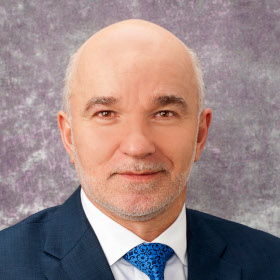
Anto Bagic – Full Professor, Department of Neurology, School of Medicine, University of Pittsburgh, United States
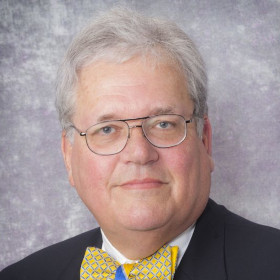
James T. Becker – Full Professor, Department of Psychiatry, University of Pittsburgh, United States
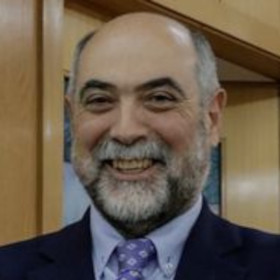
Fernando Cadaveira – Full Professor, Department of Clinical Psychology and Psychobiology , School of Psychology, University of Santiago de Compostela, Spain
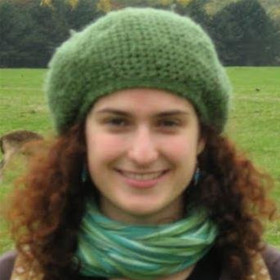
Nazareth Castellanos – Senior researcher, Nirakara Lab, Complutense University of Madrid, Spain
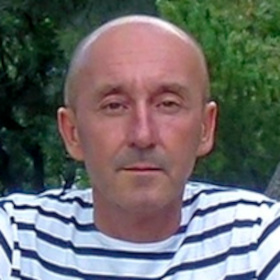
Roberto Colom – Full Professor, Department of Biological and Health Psychology, Universidad Autónoma de Madrid, Spain
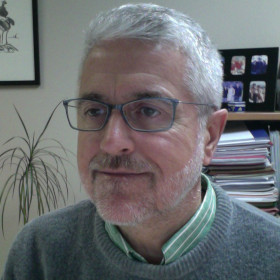
Fernando Díaz – Full Professor, Department of Clinical Psychology and Psychobiology, School of Psychology, University of Santiago de Compostela, Spain
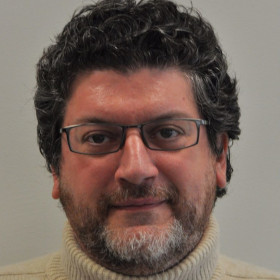
Alberto Fernández – Associate Professor, Department of Legal Medicine, Psychiatry and Pathology, School of Medicine, Complutense University of Madrid, Spain
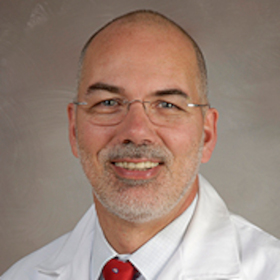
Michael Funke – Associate Professor and Director of the MEG Center, McGovern Medical School University of Texas Health Science Center, United States

Ira Haraldsen – Senior researcher, Department of Neurology, Oslo University Hospital, Norway

Rik Henson, Deputy director, MRC Cognition and Brain Sciences Unit University of Cambridge, UK
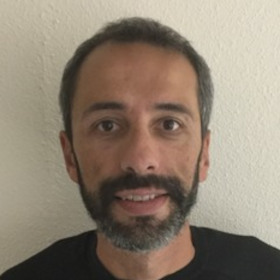
José Antonio Hinojosa – Associate Professor, Department of Experimental Psychology, School of Psychology, Complutense University of Madrid, Spain

Stephanie Jones – Associate Professor, Department of Neuroscience, Brown University, United States
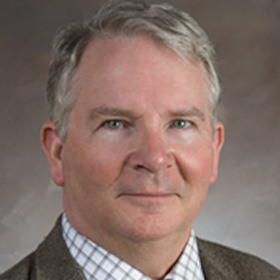
John C. Mosher – Full Professor, Department of
Neurology, McGovern Medical School University of Texas Health Science Center, United States
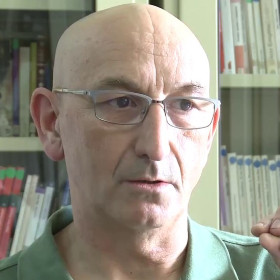
Enric Munar – Full Professor, School of Psychology, University of Islas Baleares, Spain
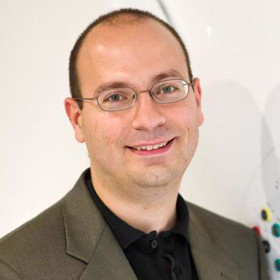
Dimitrios Pantazis – Director, MEG lab, Martinos Imaging Center, MIT McGovern Institute for Brain Research, United States
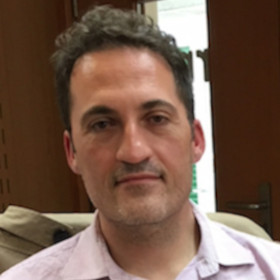
Ernesto Pereda – Full Professor, Department of Industrial Engineering & IUNE, La Laguna University, Spain
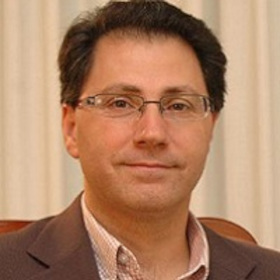
Miguel Pérez – Full Professor, Department of Clinical Psychology, University of Granada, Spain
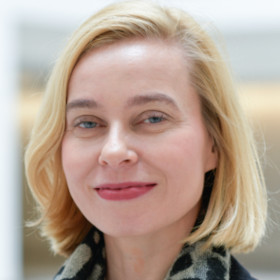
Petra Ritter – Senior researcher, Department of Neurology and Experimental Neurology, Charité – Universitätsmedizin de Berlín, Germany
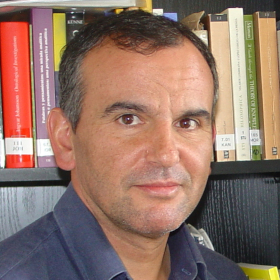
Francisco Salto – Full Professor, Department of Psychology, Sociology and Philosophy, School of Education, University of León, Spain
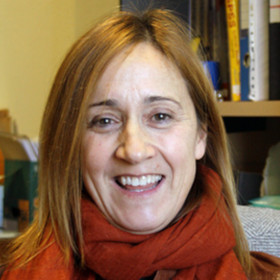
Carmen Valiente – Associate Professor, Department of Clinical Psychology, School of Psychology, Complutense University of Madrid, Spain
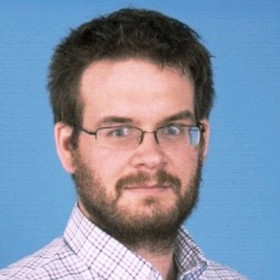
Stefan Walter – Senior researcher, Department of Medical Specialities and Public health, School of Health Sciences, King Juan Carlos University, Spain
Contact
Currently we are moving places. We will inform of our new location soon!
Meanwhile, you can find our researchers in the School of Psychology of the Universidad Complutense de Madrid, or sending an email to c3n@ucm.es.
Alumni
Almudena Capilla – Associate Professor, Department of Biological and Health Psychology, Autónoma University of Madrid, Spain
Alejandra Carboni – Associate Professor, Center for Basic Research in Psychology, University of La República, Uruguay
Gema Díaz Blancat – Associate Professor, Department of Psychology, CES Cardenal Cisneros, Spain
Santiago Fernández – Associate Professor, Department of Experimental Psychology, Complutense University of Madrid, Spain
Mercedes Montenegro – Director, Memory Decline Prevention Center Madrid Salud, Ayuntamiento de Madrid, Spain.
Guiomar Niso – Post Doc researcher, McConnell Brain Imaging Centre (BIC) of the Montreal Neurological Institute, McGill University, Canada
José Ángel Pineda-Pardo – Post Doc researcher, CINAC-Hospital Puerta del Sur (Hospitales Madrid), Spain
Cristina Saugar – Associate Professor, International University of La Rioja, Spain
Elena Solesio – Post Doc researcher, Department of Biological and Health Psychology, Autónoma University of Madrid, Spain
Lucía Vaquero – Marie Sklodowska-Curie Postdoctoral fellow, Music and Audio Research Laboratory, New York University, US.
Raquel Yubero – Neurpsychologist, Department of Neurology, Quironsalud Madrid University Hospital Spain
Doctoral theses carried out at the Center for Cognitive and Computational Neuroscience in the last few years:
2023
Brenda Nadia Chino Vilca
Isabel Suárez Méndez
Inés Abalo Rodríguez
Lucía Torres Simón
Alejandro Santos Mayo
2022
Javier de Echegaray y Díaz de Otazu
2021
Luis Fernando Antón Toro
Federico Ramírez Toraño
2020
Jaisalmer de Frutos
María Carmen Cámara
María Dolores Villalobos Tornero
2019
María del Carmen Martín-Buro García de Dionisio
Ricardo Bruña Fernandez
Teodoro Pascual-Nicolás
Juan García Prieto
2018
Inmaculada C. Rodríguez Rojo
Gema Díaz Blancat
David López Sanz
Sandra Pusil Arce
2017
Ángeles Correas Martín
2015
Pablo Cuesta Prieto
Pilar Garcés
Jose Ángel Pineda
Gerardo Gálvez
Eduardo García Laredo
Mercedes Montenegro Peña
Beatriz López Hernández
2014
María Eugenia López
Iria Arbaiza Díaz del Río
Javier Pacios García
2013
Sara Aurtenetxe
Guiomar Niso Galán
2011
Ricardo Bajo Bretón
2009
David del Río
Elena Solesio Jofre
2008
Raquel Yubero Pancorbo
Research stays/training periods carried out at the Laboratory of Cognitive and Computational Neuroscience in the last few years:
2018
Belén María Montabes de la Cruz – Undergraduate student (Psychology), University of Glasgow (UK)
Silvia Marcos de Pedro – Postgraduate student (Psychology), Complutense University of Madrid (Spain)
Nadia Osowski Freire – Extracurricular, Saint Louis University (USA, Spain)
Alba Sánchez de Felipe – Postgraduate student (Physics), Complutense University of Madrid (Spain)
Sandra Doval Moreno – Postgraduate student (Psychology), Complutense University of Madrid (Spain)
Francisco Pons – Postgraduate student (Psychology), Complutense University of Madrid (Spain)
2017
Brenda Nadia Chino – Post Doc researcher (Psychology), San Pablo Catholic University (Perú)
Alberto Bandres – Postgraduate student (Engineering), Complutense University of Madrid (Spain)
Sarai Garcia Vaquero – Postgraduate student (Psychology), Complutense University of Madrid (Spain)
Martin Carrasco – Postgraduate student (Engineering), University of Twente (Netherlands)
Clara Martínez Sánchez – Undergraduate student (Engineering), Technical University of Madrid (Spain)
Brisa Garcia – Undergraduate student (Psychology), Saint Louis University (EEUU)
Ana Sofía Egues – Extracurricular (Neuroscience)
Patricia Santos – Undergraduate student (Biomedical Engineering), Imperial College (UK)
Elizabeth Shumbayawonda – PhD student (Mechatronic Engineering), Surrey University (UK)
2016
Alberto Nebreda – Undergraduate student (Psychology), Complutense University of Madrid (Spain)
Alejandra García – Undergraduate student (Psychology), Complutense University of Madrid (Spain)
Johanna McElfresh – Postgraduate student (Psychopharmacology), Complutense University of Madrid (Spain)
Isabella Rogge – Extracurricular (Psychology), Saint Louis University (UK)
Federico Ramirez Toraño – Postgraduate student (Engineering), Technical University of Madrid (Spain)
Stefan Walter – Post Doc researcher (Economics), University of California Irvine (USA)
Gianluca Susi – Post Doc researcher (Engineering), University of Rome “Tor Vergata” (Italy)
Veronica Romero Medina – Undergraduate student (Biomedical Engineering), Technical University of Madrid (Spain)
Cristina Sabater Useros – Undergraduate student (Biomedical Engineering), Technical University of Madrid (Spain)
Araceli Luque – Undergraduate student (Biomedical Engineering), Technical University of Madrid (Spain)
Celia Martin Vicario – Undergraduate student (Biomedical Engineering). Technical University of Madrid (Spain)
2015
Adonay Nunes – Postgraduate student (Biomedical Engineering), University of Barcelona (Spain), University of York (UK)
James T Becker – Senior (Psychiatry, Neurology and Psychology), University of Pittsburg (USA)
Ma Xim – Undergraduate student (Engineering), Beijing Institute of Technology (China)
Alexandra Martínez – Extracurricular (Psychology), Complutense University of Madrid (Spain)
Jaisalmer De Frutos Lucas – Postgraduate (Psychology), Autonomous University of Madrid (Spain)
Sofia De la Fuente – Extracurricular (Psychology), Complutense University of Madrid (Spain)
2014
Sofia De la Fuente – Extracurricular (Psychology), Complutense University of Madrid (Spain)
Raúl Luna – Postgraduate student (Psychology), Complutense University of Madrid (Spain)
Andrés Martínez – Extracurricular (Psychology), UCJC University of Madrid (Spain)
Jaime Callejas – Extracurricular (Neurociencia), Complutense University of Madrid (Spain)
Maria del Carmen Martin Buro – Postgraduate student (Psychology), Complutense University of Madrid (Spain)
Maria Grazia Vaccaro – PhD student (Psychology), University of Catanzaro “Magna Graecia” (Italy)
Members of the Center
Here you can find all the members of our Center.

